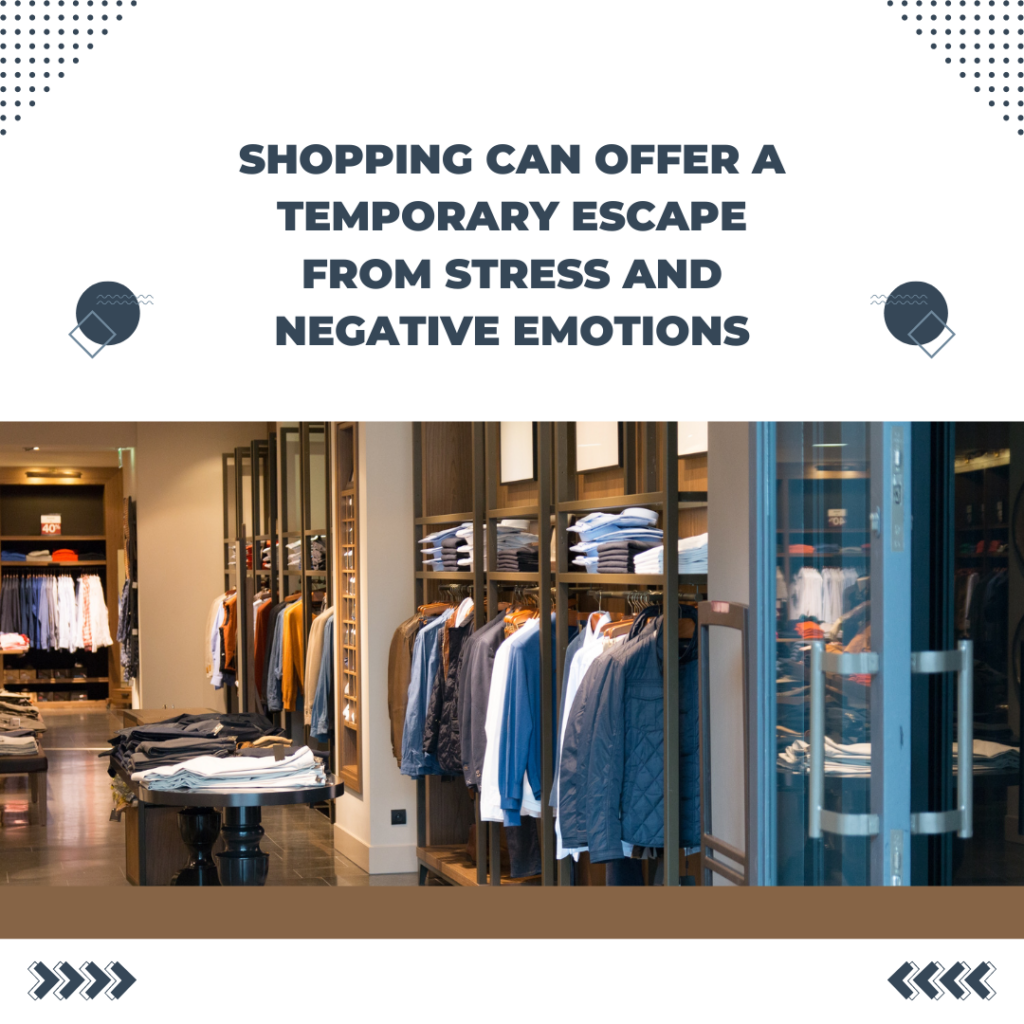
In today’s consumer-driven society, shopping has become a popular way for many people to cope with stress, anxiety, and other negative emotions. Known colloquially as “retail therapy,” the act of purchasing new items can provide a temporary sense of relief and happiness. However, using shopping as a coping mechanism can lead to several hidden dangers that can negatively impact mental health, financial stability, and overall well-being.
The Temporary High
Shopping can trigger the release of dopamine, a neurotransmitter associated with pleasure and reward. This dopamine rush can create a temporary feeling of happiness and satisfaction, similar to other forms of escapism, such as eating comfort food or engaging in social media. However, this high is short-lived, and once it fades, the negative emotions that prompted the shopping spree often return, sometimes even more intensely. This can lead to a cycle of compulsive shopping, where individuals continuously seek out the temporary high to escape their problems.
Financial Strain
One of the most significant hidden dangers of using shopping as a coping mechanism is the potential for financial strain. Compulsive shopping can lead to accumulating credit card debt, draining savings, and even jeopardizing one’s ability to pay for essential expenses like rent, utilities, and groceries. The stress of financial instability can exacerbate the very emotions that individuals are trying to escape, creating a vicious cycle that is difficult to break. Over time, this can lead to serious financial problems, including bankruptcy.
Emotional Avoidance
Shopping as a coping mechanism often serves as a way to avoid dealing with underlying emotional issues. Rather than addressing the root causes of stress, anxiety, or depression, individuals use shopping to distract themselves temporarily. This avoidance can prevent personal growth and the development of healthy coping strategies. Over time, the unresolved emotions can manifest in other harmful ways, affecting relationships, work performance, and overall mental health.
Impact on Relationships
Compulsive shopping can also strain personal relationships. Loved ones may become frustrated or concerned about the individual’s spending habits, leading to conflicts and feelings of distrust. The secrecy and guilt often associated with compulsive shopping can further isolate individuals from their support networks. This isolation can deepen feelings of loneliness and exacerbate the emotional issues that the person is trying to escape in the first place.
Environmental Concerns
In addition to personal and financial consequences, excessive shopping contributes to environmental issues. The production, transportation, and disposal of consumer goods generate significant amounts of waste and pollution. By using shopping as a coping mechanism, individuals contribute to the growing problem of overconsumption, which has far-reaching effects on the planet.
Developing Healthier Coping Strategies
To mitigate the hidden dangers of using shopping as a coping mechanism, it’s essential to develop healthier ways to manage stress and negative emotions. Engaging in physical activity, practicing mindfulness and meditation, seeking support from friends and family, and talking to a mental health professional are all effective alternatives to retail therapy. Building these healthier coping strategies can provide more sustainable relief and improve overall well-being.
While shopping can offer a temporary escape from stress and negative emotions, relying on it as a primary coping mechanism can lead to significant hidden dangers. From financial strain and emotional avoidance to relationship conflicts and environmental impact, the costs of compulsive shopping far outweigh the fleeting pleasure it provides. By recognizing these risks and developing healthier coping strategies, individuals can break the cycle of retail therapy and foster a more balanced and fulfilling life.